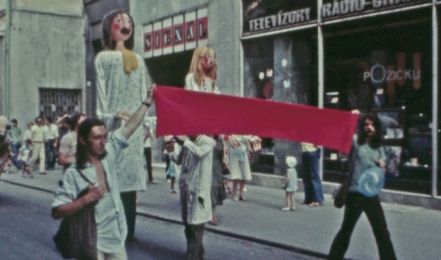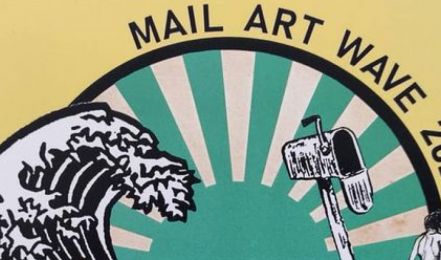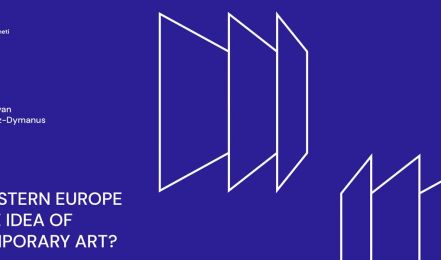‘network’
Artpool40 – Aktív Archívumok, Művészeti Hálózatok
… curatorial and museological practices, and the historiography of Cold War art scenes and networks. The conference takes Artpool’s 1979 concept of an “ Active Archive ” as a starting point to explore its contemporary interpretations and applications, and its similarities with and differences from other artist archives. As Artpool’s founder György Galántai puts it, an active archive “generates the very material to be archived” through calls for participation, cooperation, …
Párhuzamos struktúrák, kommunikációs csatornák és csomópontok
… covened by Andrea Euringer Bátorová (Comenius University, Bratislava) will investigate the networks, communication channels, nodes and vechicles of transfers between the art scenes of the countries of the so-called "Eastern bloc" in the 1970s. Speakers: Andrea Bátorová, Hana Buddeus, Katalin Cseh-Varga, Daniel Grúň, Beáta Hock, Mira Keratová, Lujza Kotočová, Zsuzsa László, Karolina Majewska-Güde, Pavlína Morganová, Jana Písaříková, Dagmar Svatošová For more details visit the …
„Célszerű lenne, ha minden pszichológus a saját elmeállapotával foglalkozna”
… case studies as a point of departure, the presentation will explore the question of how the social networks of people were exploited and used by the Ministry of Interior to obtain information, and the specific role and responsibility of those who, through their corrective and curative work, knew much more about the hidden networks of communities and the workings of the human psyche. In the spring of 2022, KEMKI will organise a three-part series of open lectures on the history of the Bródy …
JÖVŐ KEZDETEK / VÉLETLEN EGYBEESÉSEK | 50 ÉVE | 40 ÉVE | 30 ÉVE | 20 ÉVE | 10 ÉVE | MOST
… beginnings can manifest consciously through our perception of coincidences. In the holarchical network of knowledge, “artistic” products come into being through holonic collaboration. Hence, art might find an answer to the meaning of human life. artpool.hu/K51/2022 Exhibition-event in the Galántai House: FUTURE BEGINNINGS / COINCIDENCES | NOW Mail Art Wave 2022: a global, non-profit experiment with support from DodoDada, the E.O.N. (Ethereal Open Network) archive and numerous …
Hogyan terjedt el a kortárs művészet Kelet-Európában?
… economic, and artist transfigurations of postsocialism. The conversation around the SCCA network, or Sorosart, also leads to questions regarding the impact of the postsocialist contemporary on global art, and/or the broader institutionalization of art in the aftermath of 1989. This event – organized by the Central European Research Institute for Art History (KEMKI) of the Museum of Fine Arts Budapest – is part of these institutions’ ongoing research into the art of the 1980s. The …




